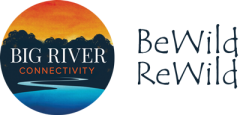HOME › Forums › We must choose to be lovers of the wild or not. What say you? › Wild Love
- This topic has 1 reply, 2 voices, and was last updated 1 week, 3 days ago by GZ.
-
AuthorPosts
-
-
Waking up this morning and thinking about turning 72 I realized that after traveling the world looking for wilderness adventures I have never been anywhere as wild as where I live now here in the heartland – the most biologically altered state in North America.
For example, I saw a grizzly bear get shot after killing a fellow camper; woke to a gun at my head delirious with malaria in the jungles of the Yucatan; lived for 17 years without running water; leaning over the bow of the canoe in a blizzard breaking iced over lakes with a driftwood log so I could paddle out and not be frozen in for the winter in Canada; lost at sea kayaking off the coast of British Columbia in a storm at night rolling down white capped waves eight feet high; and waking up in a hospital after days with a deathly fever from a tick bite.
But, with age I have come to realize that wildness is a state of mind, not a place or event. I see now that my quest was to move with fear as a friend, find love and learn about where I live. I am still exploring what it means to be indigenous to my home, my family of the more-than-human. I live here on the front lines, ground zero of what is a dwindling diversity of species and where my species is in denial of our death.
Never in the history of people have we lived in such a wild place – the highest extinction rate in 65 million years, tied to technology beyond our understanding, and living on a combination of chemicals never found in nature. With age, as an elder my story is simple – wildness is a way of being, not a place, but somewhere to love.
-
Mark Edwards
I need to clarify and change one word I used in the essay. I stated I was exploring what it means to be “indigenous” to my home. I believe the correct word would be “naturalized” to my home. As Robin Wall Kimmerer states so clearly in the book, Braiding Sweetgrass, “I want to envision a way that an immigrant society could become indigenous to place, but I’m stumbling on the words. Immigrants cannot by definition be indigenous. Indigenous is a birth-right word. No amount of time or caring changes history or substitutes for soul-deep fusion with the land.”
What would the right word be? Naturalized? As I pursue learning and loving the land, the more-than-human world, I am developing a history but I realize I have just arrived and will need many life-times, or generations, a different culture and still it would be a continuing process as the world continues to change.
-
-
AuthorPosts
